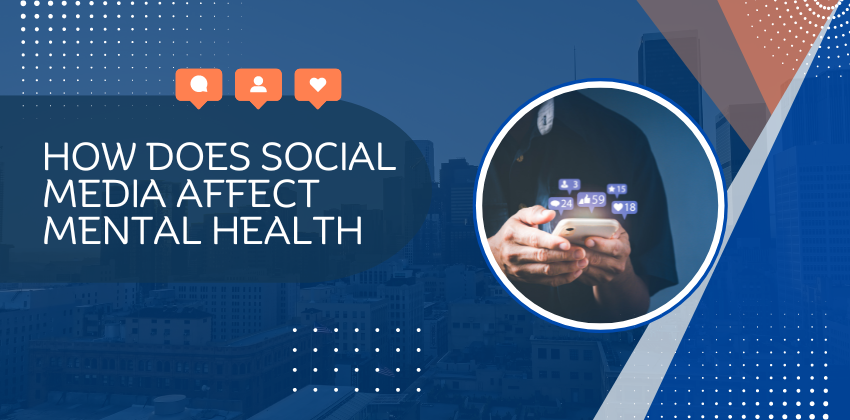
Human beings are naturally social creatures. We thrive around others, and our relationship quality significantly affects how happy and mentally healthy we are. Strong connections with people can help reduce stress, anxiety, and sadness, boost our self-esteem, make us feel better, and even live longer. In today’s world, many of us use social media like Facebook, Twitter, Instagram, and others to connect. These platforms have their benefits, but it’s important to remember that they can’t replace real-life interactions. Meeting people face-to-face triggers certain brain chemicals that make us feel less stressed and happier. Even though social media is meant to bring us closer, spending too much time on it can make us feel more alone and sad.
However, some studies show that social media can harm our mental health. It’s been suggested that it can make us feel bad about our bodies, increase the risk of getting addicted to it, lead to cyberbullying, and even affect our mood. Using social media too much can make us feel lonely, worried about missing out, and less happy overall. People who might be at risk of becoming addicted to social media often say they feel sad and lack self-confidence.
In general, researchers have found that social media can have good and bad effects on our mental health. It can help us feel connected and good, but using it too much might make us feel not so great. Learning how to use social media smartly is essential to ensure a good experience. This way, we can enjoy connecting online while staying mentally well.
Cyberbullying - Cyberbullying is a severe problem that worsens as more people use social media. Sometimes, teenagers join in cyberbullying because their friends do it or because they think they can hide behind screens and not get caught. This makes the mean comments seem less personal than they would be if said face-to-face. Sadly, grown-ups can also be part of cyberbullying, hurting a person’s confidence. Cyberbullying can even lead to feeling sadder or more worried.
Addiction - Social media can be addictive. Some experts aren’t entirely sure if it’s a real problem, but there’s some promising proof that it might be. The researchers think that there could be something like a “Facebook Addiction Disorder” because some people show signs of addiction, like ignoring their personal life, being focused on it, using it to escape, feeling better when they use it, needing more and more time on it, and trying to hide how much they use it. They also found that different types of people use social media too much for various reasons like shy people and outgoing people use it differently. But that’s a whole other topic.
Comparison - One reason social media can make people feel lonely or left out (even if they're not alone) is because of the comparison factor. When we scroll through our Facebook feeds, we often compare ourselves to others and decide how we stack up against them. A study looked into how we compare ourselves to what others post – either by thinking we’re doing better or worse than them. Surprisingly, both types of comparisons made people feel worse. This is interesting because, in real life, only thinking that someone else is doing better than us makes us feel down. But in social media, any comparison can lead to feeling sad or down.
Friendship - Having lots of friends on social media doesn’t necessarily mean you have a better social life. Our brains can only manage a certain number of friends, and to keep those friendships strong, we need to hang out with people in person, not just online. So, even if you're being social on Facebook, it doesn't count the same way. Loneliness can lead to many health and mental health issues, even making us sick sooner. That’s why having real friends there for us in person is essential. Spending time with them has a much better impact on how we feel than spending time with virtual friends online.
Self-Esteem - Social media often gets criticized for how easy it is to change pictures using filters and other tools. These altered images often show a body image that isn’t real, making us feel bad about our appearance. This can even lead to severe issues like eating problems and feeling bad about our bodies, especially in younger folks.
But it’s not just how others look on social media that makes us feel bad. How 'likes’ and 'shares’ work on these platforms makes us always compare ourselves to others. If our posts get fewer likes than a friend’s, we might feel unpopular or not good enough. This can make our confidence and how we see ourselves depend on how many people like our posts instead of focusing on who we are.
Conclusion - In social media, we’re discovering that its impact on mental health combines positives and negatives. While it provides a platform for connection and interaction, excessive use can lead to cyberbullying, addictive behaviours, and unhealthy comparisons. Pursuing virtual popularity can sometimes overshadow the importance of genuine friendships and self-worth. This complex interplay calls for a mindful approach to ensure that our online interactions enhance, rather than undermine, our mental well-being.